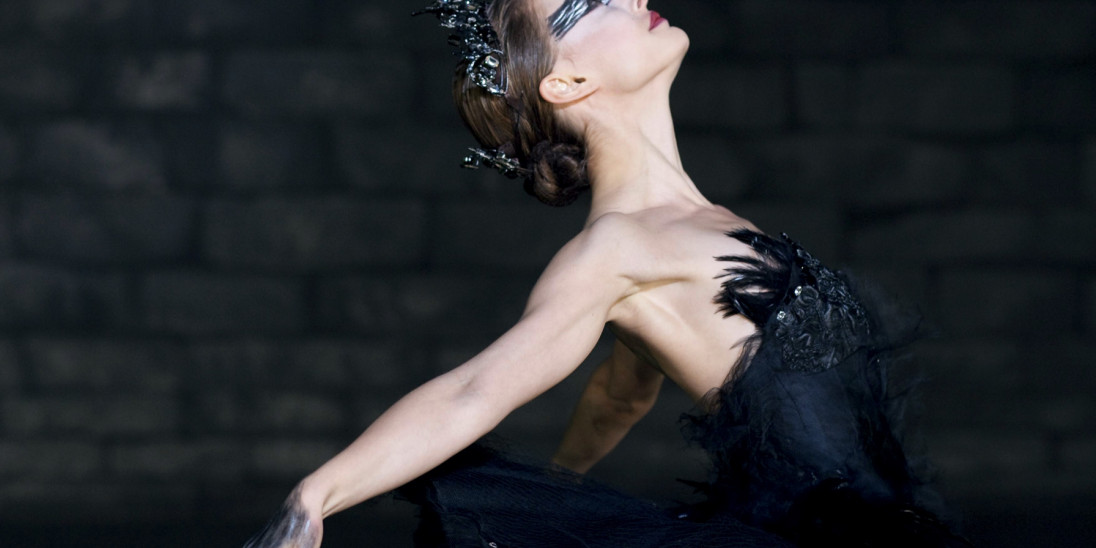Black Swan(2010)
Psychological horror from director Darren Aronofsky that follows a leading ballerina undergoing a dramatic and dark change in character.
Certificate
Age group16+ years
Duration103 mins



Darren Aronofsky’s psychological thriller Black Swan can be interpreted in many ways: perhaps a commentary on the duality within us all, maybe a story of the obsession with perfection in the arts, or perhaps a criticism of the stress under which many dancers and artists reside. Whichever way the film is read, it cannot be denied that this is a masterclass in filmmaking and storytelling in general. Its contained yet grandiose story present much to the casual viewer, but its subtleties provide another layer to explore for those who pay close attention to the characters and what is and is not part of our reality.
Natalie Portman’s Oscar-winning lead performance as Nina never fails to impress on first and subsequent viewings, as she makes great use of appearing to hold back emotions which are periodically boiling just beneath the surface, as well as convincingly conveying the ruinous arc which the character goes through. She is supported by actors such as Vincent Cassel as the visionary, if slightly pretentious and misconducting director, Mila Kunis as the darker and seductive threat to our protagonist and Barbara Hershey as the mother who sees her missed opportunities in her daughter. These performances must not be overlooked, as I believe them to be completely transformative in nature. When I watch this film, I no longer see Vincent Cassel as the antagonist from Ocean’s Twelve, I see him as his character and his character alone. This applies to even the most minor of roles in the film.
The film is shot very purposely, with the movement of the camera varying depending on what is happening in the story and where our lead character is mentally. Whether the camera holds on a character, dollies alongside someone, or chaotically swerves around a stage, each shot is planned and executed with a reason. This allows the audience to subconsciously relate to Nina as they are more aware of her mental state. The colour palette and lighting perfectly support and complement the tone of the film with mostly greys and blacks, and the occasional pale pink to communicate Nina’s childlike innocence. The choice to shoot the film on 16mm film complements the image wonderfully, especially in dark rooms, as the grain helps the story feel more cinematic and raw.
Clint Mansell’s score ties the film together with its occasionally soothing, sometimes grand, and eventually maddening score that accompanies the visuals with its representation of Nina’s mental state. Mansell has composed some fantastic scores before Black Swan, most notably another one of Aronofsky’s hit films Requiem for a Dream (2000) and Duncan Jones’ Moon (2009) (both of which I adore as well), but I’d argue that the track that accompanies the film’s climax, titled Perfection, is one of his best additions to any film. It wonderfully captures grace, beauty, and chaos in just under 6 minutes. The music is so perfectly tethered to the whole film in my mind that I simply cannot imagine the film without the score. It feels as if they are, and always have been, one.
But of course, the main attraction of the film is its story and its characters. The world which we are exploring is immediately interesting as Aronofsky deliberately set the story in a setting which hadn’t been visited much – the world of ballet. Here, we are introduced to Nina and we follow her through her struggles of properly portraying the Swan Queen in her company’s production of Swan Lake. This harkens back to one of the ways that the film can be interpreted – an artist’s obsession with perfection. The audience follows Nina as they question what they have seen, what is real, and how this is affecting her mind. This is one of the key features of the film that lends it so well to multiple viewings, as each viewing can serve as another attempt to confirm one’s theories or to form a completely new outlook on what the film means. On a pure entertainment level, the film is absolutely riveting. The pacing and runtime leave no room for boredom and the sequence of events gradually build in tension and lead to one of the most satisfying third acts of all time. The supporting characters (while all having clearly defined characters themselves) serve to add pressure to Nina in their own ways, whether it is the expectations and constant fussing from a mother or a looming threat from a dancer that could steal her role, Nina must always be striving for absolute perfection, and that is what makes the film so satisfying.
As I said, the film has something for all viewers, whether it be a cinephile looking for rich themes and commentary, or a casual viewer who is simply looking for escapism, I cannot imagine anyone feeling unhappy with what this film presents them. It is essential viewing for any fan of film in my mind.
Print this review
Weird even for director David Lynch, this unsettling film centres on a naive wannabe actress Betty and glamorous amnesiac Rita.
Certificate